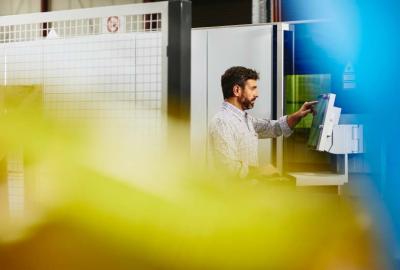More than 14.2 million working days every year in the social care sector are lost to the interruptions caused by the demands of multitasking, according to our latest survey.
In a comprehensive poll of social care employees, we found that workers were interrupted from a key task by other distractions an average of six times a day. With workers than estimating it took them five minutes to regain their initial momentum after each distraction, the total time wasted each day per individual was 32 minutes.
With an estimated 1.23 million people working full-time in the social care sector, working approximately 253 days a year, this means that more than 14.2 million days a year are wasted – the equivalent of 11.6 days per employee.
Multi-tasking in social care.
"employers and employees alike probably underestimate the productivity implications of constantly switching between tasks"
- Victoria Short, MD of Randstad Care
When workers are distracted from what they are doing by an interruption – which for a social care worker on the ground could be dealing with a query from a visitor or family member or higher up the chain could be juggling research requirements with the ability to practice – they estimate that it takes them five minutes to get back into the swing of what they were doing beforehand.
“Previous research actually indicates that these estimates are conservative and that the real figure is actually closer to 20 minutes, so the headline figure of 14.2m working days lost every year could actually be on the conservative side.”
The rise of multitasking.
The ability to multitask has long been an integral requirement of social care work, but it is becoming an increasingly time-consuming component. Almost two-thirds of survey respondents said that interruptions to their core activities are more common than they were two or three years ago.
Despite this rise, social care workers aren’t necessarily adapting the way they go about their daily business to cater for these demands. Just over a third have taken proactive steps to counteract the sometimes pervasive nature of multitasking by changing their environment and removing potential distractions, meaning almost two-thirds have no such strategy in place.
However, social care workers proved one of the most adept sectors at clustering similar activities together, meaning that the ‘ramp-up-time’ switching between different types of tasks is kept to a minimum. More than two-thirds of respondents claimed to do this effectively.
"social care workers have to be ruthlessly efficient"
Victoria Short added: “Social care workers often aren't susceptible to the distractions that blight office workers such as emails, texts or surfing the internet, but that doesn't mean they aren't switching between tasks or facing other interferences that can waylay them from the task at hand.
“While it’s not as easy for them to devise strategies to change the environment they work in to minimise disruptions as it is for other professions, they have proved themselves more adaptable than their contemporaries in other sectors at clustering similar activities together, limiting the transitional time between activities.
Social care workers have to be ruthlessly efficient to ensure that their patients are receiving sufficient attention and the highest possible quality of care and this is borne out by this methodical approach to different jobs.”
The gender divide.
Conventional wisdom has long suggested that women might make better multitaskers than men and the social care workers polled by us did nothing to debunk the theory. Almost three-quarters thought that women were better at multitasking, 12% thought the sexes were equal and just 4% were willing to back men as better multitaskers.
Despite differing attitudes towards multitasking – 68% of social care workers said they enjoyed variety while 27% weren’t keen on juggling tasks – employees in the sector are very confident about their ability to handle different roles. More than nine in 10 social care workers consider themselves capable multitaskers, with almost a third classing themselves as very good.
Victoria Short concluded: “Love it or loathe it, multitasking is a necessary part of our professional lives and the individuals that prove most adept at it are the ones that embrace it and make allowances in their schedule for it as opposed to those who let the smallest interruption knock them off their stride.
Many social care workers are attracted to the profession by the variety it offers and the fact that no two days are the same, which means that multitasking comes naturally to many who work in the sector. The need for multitasking in one’s professional arsenal is only like to increase, so those considering a career in care should bear this in mind and tailor their skill sets accordingly.”



